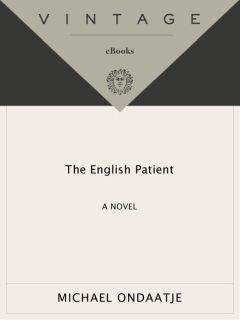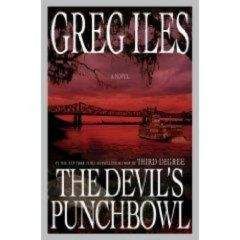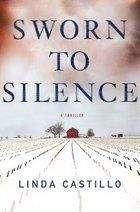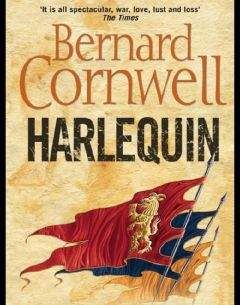Michael Ondaatje - The English Patient

Скачивание начинается... Если скачивание не началось автоматически, пожалуйста нажмите на эту ссылку.
Жалоба
Напишите нам, и мы в срочном порядке примем меры.
Описание книги "The English Patient"
Описание и краткое содержание "The English Patient" читать бесплатно онлайн.
And so Hana moves and her face turns and in a regret she lowers her hair. Her shoulder touches the edge of a cupboard and a glass dislodges. Kirpal’s left hand swoops down and catches the dropped fork an inch from the floor and gently passes it into the fingers of his daughter, a wrinkle at the edge of his eyes behind his spectacles.
Acknowledgements
While some of the characters who appear in this book are based on historical figures, and while many of the areas described—such as the Gilf Kebir and its surrounding desert—exist, and were explored in the 1930s, it is important to stress that this story is a fiction and that the portraits of the characters who appear in it are fictional, as are some of the events and journeys.
1 would like to thank the Royal Geographical Society, London, for allowing me to read archival material and to glean from their Geographical Journals the world of explorers and their journeys—often beautifully recorded by their writers. I have quoted a passage from Hassanein Bey’s article “Through Kufra to Darfur” (1924), describing sandstorms, and I have drawn from him and other explorers to evoke the desert of the 1930s. I would like to acknowledge information drawn from Dr. Richard A. Bermann’s “Historical Problems of the Libyan Desert” (1934) and R. A. Bagnold’s review of Almásy’s monograph on his explorations in the desert.
Many books were important to me in my research. Unexploded Bomb by Major A. B. Hartley was especially useful in re-creating the construction of bombs and in describing the British bomb disposal units at the start of World War II. I have quoted directly from his book (the italicized lines in the “In Situ” section) and have based some of Kirpal Singh’s methods of defusing on actual techniques that Hartley records. Information found in the patient’s notebook on the nature of certain winds is drawn from Lyall Watson’s wonderful book Heaven’s Breath, direct quotes appearing in quotation marks. The section from the Candaules-Gyges story in Herodotus’s Histories is from the 1890 translation by G. C. McCauley (Macmillan). Other quotations from Herodotus use the David Grene translation (University of Chicago Press). The line in italics on this page is by Christopher Smart; the lines in italics on this page are from John Milton’s Paradise Lost; the line Hana remembers on this page is by Anne Wilkinson. I would also like to acknowledge Alan Moorehead’s The Villa Diana, which discusses the life of Poliziano in Tuscany. Other important books were Mary McCarthy’s The Stones of Florence; Leonard Mosley’s The Cat and the Mice; G. W. L. Nicholson’s The Canadians in Italy 1943-5 and Canada’s Nursing Sisters; The Marshall Cavendish Encyclopaedia of World War II; F. Yeats-Brown’s Martial India; and three other books on the Indian military: The Tiger Strikes and The Tiger Kills, published in 1942 by the Directorate of Public Relations, New Delhi, India, and A Roll of Honor.
Thanks to the English department at Glendon College, York University, the Villa Serbelloni, the Rockefeller Foundation, and the Metropolitan Toronto Reference Library.
I would like to thank the following for their generous help: Elisabeth Dennys, who let me read her letters written from Egypt during the war; Sister Margaret at the Villa San Girolamo; Michael Williamson at the National Library of Canada, Ottawa; Anna Jardine; Rodney Dennys; Linda Spalding; Ellen Levine. And Lally Marwah, Douglas LePan, David Young and Donya Peroff.
Finally a special thanks to Ellen Seligman, Liz Calder and Sonny Mehta.
Grateful acknowledgement is made to the following for permission to reprint previously published material:
Famous Music Corporation: Excerpt from “When I Take My Sugar to Tea” by Sammy Fain, Irving Kahal and Pierre Norman. Copyright 1931 by Famous Music Corporation. Copyright renewed 1958 by Famous Music Corporation. Reprinted by permission.
Alfred A. Knopf Inc.: Excerpt from “Arrival at the Waldorf” by Wallace Stevens from The Collected Poems of Wallace Stevens. Copyright 1954 by Wallace Stevens. Reprinted by permission.
Macmillan Publishing Company: Excerpts from Unexploded Bomb: A History of Bomb Disposal by Major A. B. Hartley. Copyright © 1958 by Major A. B. Hartley. Copyright renewed. Published in 1958 by Cassell 8c Co., London, and in 1959 by W. W. Norton 8c Co., New York. Reprinted by permission of Macmillan Publishing Company.
Edward B. Marks Music Company: Excerpt from “Manhattan” by Lorenz Hart and Richard Rodgers. Copyright 1925 by Edward B. Marks Music Company. Copyright renewed. Used by permission. All rights reserved.
Penguin USA: Excerpts from “Buckingham Palace” from When We Were Very Young by A. A. Milne. Copyright 1924 by E. P. Dutton. Copyright renewed 1952 by A. A. Milne. Reprinted by permission of Dutton Children’s Books, a division of Penguin Books USA Inc.
The Royal Geographical Society: Excerpt from article by John Ball, Director of Desert Surveys in Egypt (1927), from The Geographical Journal, Vol. LXX, pp. 21–38, 105–129; and excerpt from the minutes of the Royal Geographical Society meeting of November 194-, London. Copyright by the Royal Geographical Society. Reprinted by permission.
Warner/Chappell Music, Inc.: Excerpt from “I Can’t Get Started” by Vernon Duke and Ira Gershwin. Copyright 1935 by Chappell 8c Co. (Copyright renewed). All rights reserved. Used by permission.
Williamson Music Co.: Excerpt from “I’ll Be Seeing You” by Sammy Fain and Irving Kahal. Copyright 1938 by Williamson Music Co. Copyright renewed. International copyright secured. All rights reserved.
The English Patient Reader’s Guide
1. The English patient “whispers again, dragging the listening heart of the young nurse beside him to wherever his mind is, into that well of memory he kept plunging into during those months before he died” [this page]. Why does the patient consider himself to have “died”? Does he undergo any kind of rebirth during the course of the story?
2. What can you deduce from the novel about Hana’s relationship with her father? Has her father’s death, and the manner of it, caused her to retreat from the war and devote herself to the English patient? What influence do her feelings for her father have upon her relationship with Caravaggio?
3. Why did Hana decide to have an abortion during the war? How has that decision affected her, and how much influence has it had on her life at the villa?
4. How does the landscape of the novel–the Villa San Girolamo, the country around it, and the boundary between the two–reflect the inner lives of its inhabitants? Why do you think that Ondaatje has chosen Tuscany as the setting for his story? What significance do other landscapes, like the desert and the English countryside, hold for the story and its characters?
5. The English patient says, “I believe in such cartography—to be marked by nature, not just to label ourselves on a map like the names of rich men and women on buildings. We are communal histories, communal books” [this page]. How does Ondaatje use maps and cartography as a metaphor for people and history? What does geography mean to the English patient and to Ondaatje’s other characters?
6. Why has Ondaatje made Caravaggio a thief by profession? What is it in his character that makes such an occupation appropriate? “All his life he has avoided permanent intimacy” [this page]. Does Caravaggio change during the course of the novel? Does he ever come to accept intimacy, and if so, what type of intimacy and intimacy with whom?
7. The imagery at the beginning of the novel likens the patient to Christ. Later, Caravaggio says to Hana, “You don’t love him, you adore him,” to which she answers, “He is a saint” [this page]. Who else is likened to a saint, and why? Where else in the novel can you find religious imagery, and what is its purpose? The night before the Hiroshima explosion Kip sleeps in a church. What is the subject of the painting he sees there, and what is its thematic relation to the imminent atomic explosion?
8. “I came to hate nations,” says the English patient. “We are deformed by nation-states” [this page]. How does the desert negate the idea of nations? What sort of supra-national unity is experienced by the Europeans drawn to the desert, and how does each of them respond to the beginning of war? What alternate view of geography and history does the desert offer?
9. After Hiroshima, Caravaggio finds himself agreeing with Kip that “they would never have dropped such a bomb on a white nation” [this page]. How does the subject of race and racism enter into this novel? What conclusions, if any, are drawn at the end?
10. Why do you think that Hana removes all the mirrors in the house and puts them in an empty room? Is her own physical presence disturbing to her, or simply irrelevant?
11. What does this novel tell us about the British Empire at the moment it was beginning to dissolve? What are its moral strengths and its fatal weaknesses, as presented by the novel and its characters? What aspect of the Empire do Kip and Lord Suffolk represent, and what does Lord Suffolk’s death symbolize? Was Kip completely misguided in attaching himself to the British? Is his revulsion from them at the end a reasonable response, or is it too violent?
12. I think when I see him at the foot of my bed that Kip is my David” [this page], says the English patient. How can you describe the connection the patient feels between himself and Kip? Is it emotional, political, or dependent upon some other tie? In what way do the two men reflect one another?
13. “Madox was a man who died because of nations” [this page], says the English patient. What is it about Madox that makes him experience disillusionment as hopelessness, and commit suicide, while Kip is able to create new life out of similar disillusionment?
14. Why does Katherine treat her lover with physical violence? What does it say about the relationship between the two, and about Almasy’s own character? What does the manner of Katherine’s death tell us? Does it seem to you that Almasy links sex with death and pain? Can you find other places in the novel where sex and death are explicitly connected?
15. What needs and motivations originally drew Hana and Kip together? Might their relationship have been a lasting one, had it not been for the Hiroshima bombing? Why do they not keep in touch in later life, though they continue to think so often of one another?
16. Why do you think that Hana, unlike Kip, has finally “not found her own company, the ones she wanted” [this page]? Can Hana be seen as a “victim” of the war, or have her experiences in Italy simply made her more clearsighted and realistic? How do her two renditions of “La Marseillaise” indicate the change that the war has wrought in her?
17. Can the novel can be seen as a mystery, with the identity of the English patient at its heart? Does Caravaggio’s identification of the patient solve the mystery, or does there remain a question at the end? How do other characters in The English Patient, such as Hana, Kip, and Katherine, discover or come to terms with their own identities?
18. How would you describe Ondaatje’s style: does the story resemble a film perhaps, or a dream? Why has he chosen this mode in which to write this particular tale? What is his purpose in making the action move backward and forward in time?
19. The English Patient refers explicitly to Rudyard Kipling’s Kim. If you know this novel, how does its presence within the text contribute to Ondaatje’s theme? In what way, if any, do the characters in The English Patient correspond to those in Kim? Is it significant that Kip was born in Lahore?
BOOKS BY MICHAEL ONDAATJE
COMING THROUGH SLAUGHTER
This novel brings to life the fabulous, colorful panorama of New Orleans in the first flush of the jazz era; it is the story of Buddy Bolden, the first of the great trumpet players, some say the originator of jazz, who was a genius, a guiding spirit, and the king of that time and place.
Fiction/Literature/978-0-679-76785-5
THE ENGLISH PATIENT
Winner of the Booker Prize
During the final moments of World War II, four damaged people come together in a deserted Italian villa. As their stories unfold, a complex tapestry of image and emotion is woven, leaving them inextricably connected by the brutal circumstances of the war.
Fiction/Literature/978-0-679-74520-4
RUNNING IN THE FAMILY
In the late 1970s, Michael Ondaatje returned to his native country of Sri Lanka. Recording his journey through the druglike heat and intoxicating fragrances of the island, Ondaatje simultaneously retraces the baroque mythology of his Dutch-Ceylonese family.
Memoir/Literature/978-0-679-74669-0
ALSO AVAILABLE:
Anil’s Ghost, 978-0-375-72437-4
The Cinnamon Peeler, 978-0-679-77913-1
The Collected Works of Billy the Kid, 978-0-679-76786-2
Divisadero, 978-0-307-27932-3
Handwriting, 978-0-375-70541-0
In the Skin of a Lion, 978-0-679-77266-8
Lost Classics, 978-0-385-72086-1
Vintage Ondaatje, 978-1-4000-7744-1
VINTAGE INTERNATIONAL
Available at your local bookstore, or visit
www.randomhouse.com
Подписывайтесь на наши страницы в социальных сетях.
Будьте в курсе последних книжных новинок, комментируйте, обсуждайте. Мы ждём Вас!
Похожие книги на "The English Patient"
Книги похожие на "The English Patient" читать онлайн или скачать бесплатно полные версии.
Мы рекомендуем Вам зарегистрироваться либо войти на сайт под своим именем.
Отзывы о "Michael Ondaatje - The English Patient"
Отзывы читателей о книге "The English Patient", комментарии и мнения людей о произведении.







